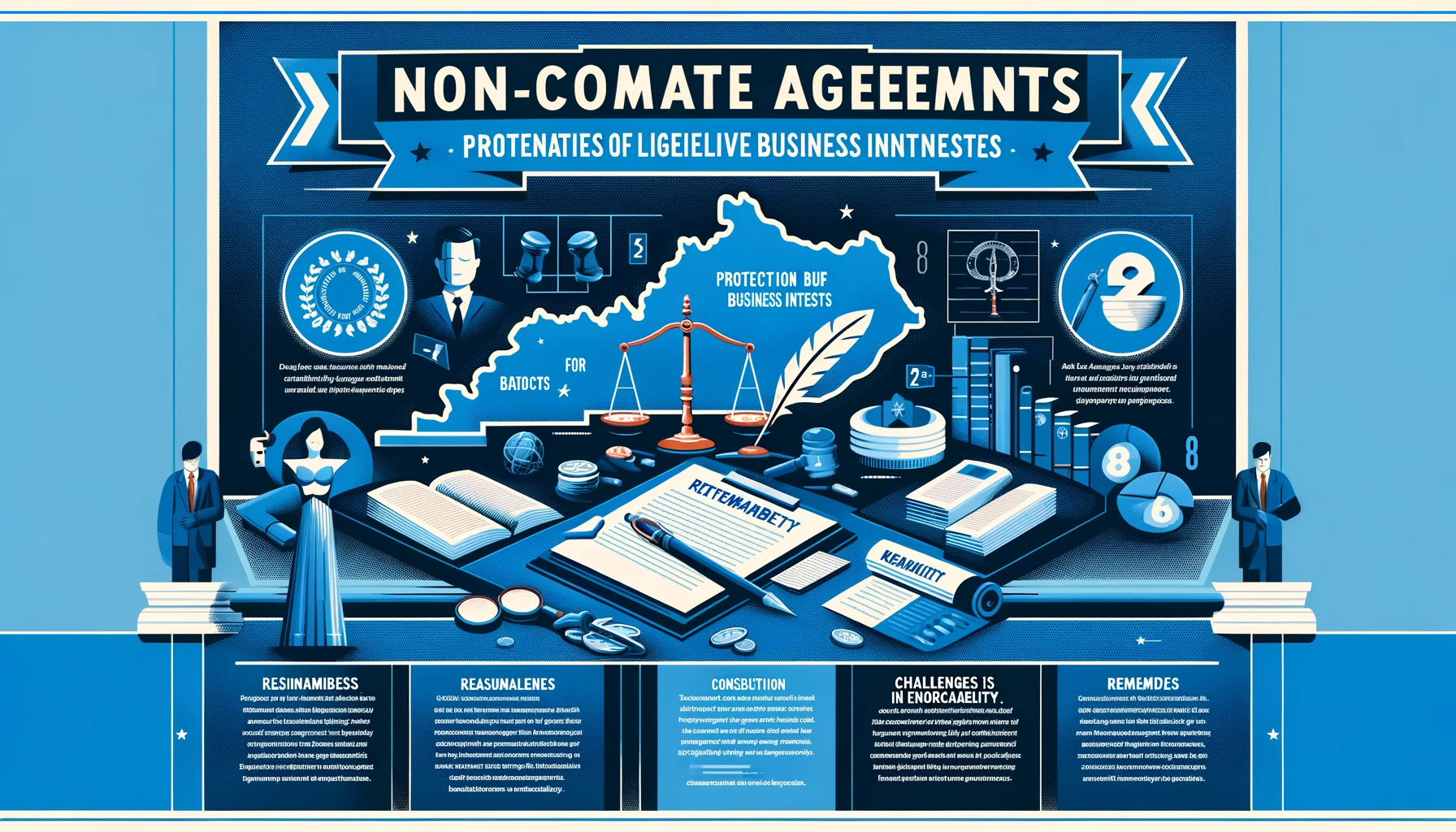Understanding Non-Compete Agreements in Kentucky: A Comprehensive Guide
In the competitive landscape of Kentucky's business environment, non-compete agreements are pivotal in protecting business interests while balancing employees' rights. This guide offers an in-depth look into non-compete agreements in KY, providing essential information for employers and employees alike, supported by credible resources.

Introduction
Non-compete agreements in Kentucky, as in other states, are legal contracts that limit an employee's ability to work in a competing business within a certain timeframe and geographical area after leaving a company. These agreements aim to protect proprietary information and maintain competitive advantages. Understanding the enforceability and limitations of non-compete clauses is crucial for both parties involved.
Legal Framework for Non-Compete Agreements in KY
The enforceability of non-compete agreements in Kentucky is determined by several factors, including reasonableness in scope, duration, and geographic limitation. Kentucky courts seek a balance between protecting businesses and not unduly restricting an individual's ability to find employment.
For foundational information on non-compete agreements, visit Wikipedia.
Kentucky's stance on non-compete agreements can be further explored through the Kentucky Revised Statutes (KRS), available on the Kentucky Legislature's website.
Key Legal Considerations in Drafting Non-Compete Agreements in KY
1. Reasonableness
A non-compete agreement must be reasonable in terms of duration, geographic area, and the type of employment or services restricted. Kentucky courts have not set specific limits but evaluate reasonableness on a case-by-case basis.
2. Legitimate Business Interests
The agreement must protect legitimate business interests, such as trade secrets, confidential information, and customer relationships. Agreements that serve solely to limit competition are generally not enforceable.
3. Employee Consideration
In Kentucky, continued employment is considered sufficient consideration for a non-compete agreement. However, offering additional incentives can strengthen the enforceability of the agreement.
The University of Kentucky College of Law provides resources and scholarly articles on the latest in employment law, including non-compete agreements.
Enforceability Challenges and Remedies
Kentucky courts will scrutinize non-compete agreements to ensure they are not overly restrictive. Employers must carefully craft these agreements to ensure they are enforceable and do not infringe upon an employee's right to work.
Remedies for Breach
If an employee breaches a non-compete agreement, employers may seek injunctions to prevent further breaches and damages for losses incurred. The specifics can be explored through case law and resources such as the Kentucky Court of Justice.
Drafting Best Practices for Employers
Clearly Define Restricted Activities: Specify what constitutes competitive activities to avoid vagueness.
Tailor Geographic and Temporal Restrictions: Ensure restrictions are narrowly tailored to the interests being protected.
Consideration Beyond Continued Employment: Though not required, offering something more can aid in enforceability.
Legal Review: Have the agreement reviewed by an attorney familiar with Kentucky's laws to ensure compliance and enforceability.
Advice for Employees
Understand Your Agreement: Fully understand the terms before signing and consider the potential impact on your future employment opportunities.
Negotiate Terms: If possible, negotiate the terms of your non-compete agreement to ensure they are fair and reasonable.
Seek Legal Advice: Consult with an attorney to understand your rights and obligations under the agreement.

Create & Review Your Contracts 10x Quality and Ease
Lawyer-level AI handles all your contract needs, with real lawyers providing safeguarding support

Conclusion
Non-compete agreements in Kentucky serve as a critical tool for businesses to protect their legitimate interests but must be carefully constructed to be enforceable. Both employers and employees must navigate these agreements with a thorough understanding of the legal landscape, ensuring that the agreements are fair, reasonable, and reflective of both parties' interests. Engaging with legal experts and leveraging authoritative .gov, .edu, and Wikipedia resources is advisable for anyone involved in drafting, signing, or enforcing non-compete agreements in Kentucky.

